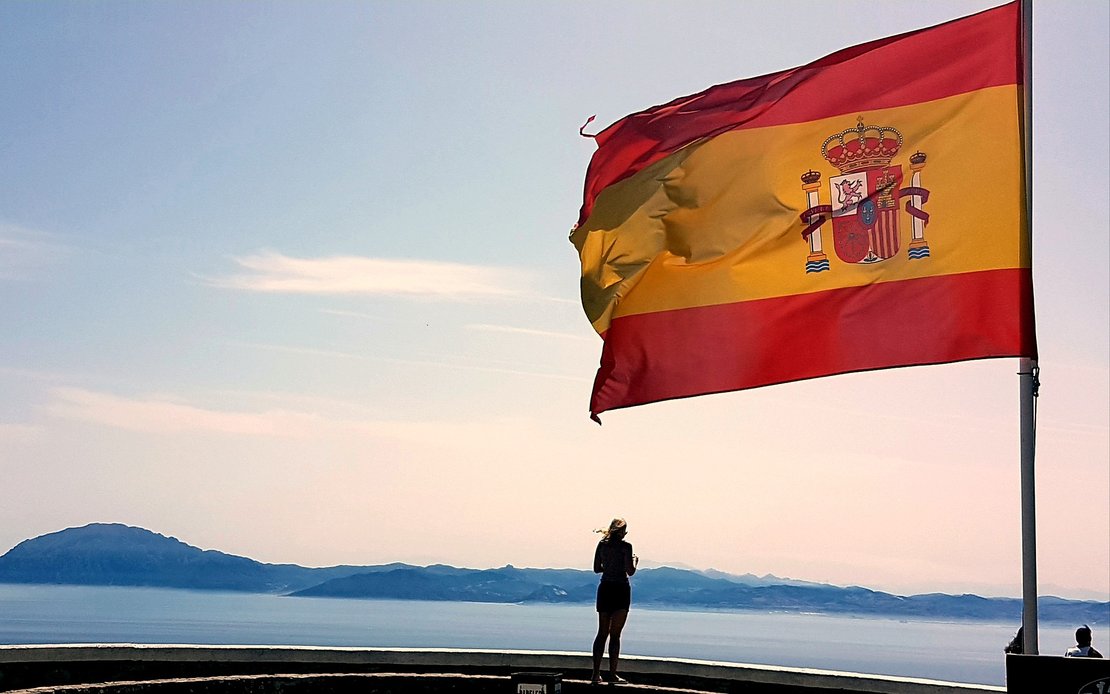How Long Does It Take to Learn Spanish (Realistically)

Spanish is a popular language for English speakers to study because of its importance and popularity. Also, English speakers find it among the simplest languages to learn. The amount of time it will take students to become fluent in the language is estimated by the U.S. Foreign Service Institute. According to the FSI study, it takes 24–30 weeks or roughly 600–750 class hours. This period is intended for natural English speakers to learn conversations in Spanish proficiency.
The number of hours needed to progress from one level to the next in learning Spanish is detailed in the table below.
| Spanish Level | Intensive Course Total Hours |
|---|---|
| A1 Beginner | 40 hours |
| A2 Elementary | 40 hours |
| B1 Intermediate | 80 hours |
| B2 Upper-Intermediate | 100 hours |
| C1 Advanced | 180-200 hours |
| C2 Highly Competent | 200-240 hours |
Related: Learn more about languages spoken in Spain.
Factors That Influence Learning
One of the most popular languages for language learners has always been Spanish. The benefits are many, starting with the fantastic tourist sites that the Spanish-speaking countries provide and continuing with the countless chances that learning this language provides for job seekers and businesspeople.
Here are some of the factors that influence learning Spanish:
Consistency
You should need about 600 hours to learn Spanish, but how you split up those hours over the coming months or even years is entirely up to you. How long do you really intend to dedicate to learning Spanish each day? It will take you longer if you decide only to study Spanish one or two days a week.
The secret is to organize your learning method so that you can stick to it even on bad or lazy days. Learning 25 new words per day might be possible for the first few days. But, scheduling a day off per week and learning 5 new phrases per day seems manageable and can be a solid long-term plan. This would mean that you will learn 1560 new words in a year.
Speaking With Locals
You will learn Spanish in way less time if you’re around native speakers. Contact with native Spanish speakers can be a game-changer. Learning will be lot easier if you can sit among them and listen while they converse, debate, explain, and provide evidence.
The journey to learning Spanish includes small grammatical errors, a few misspellings, and lengthy pauses before developing an answer. In the case of Spanish, native speakers tend to be quite outgoing and chatty people.
Motivation
It all begins with the reasoning behind your decision to study Spanish. Are you pursuing it just because you're curious? What kind of a difference will knowing this language make in your life? Any challenging activity's success or failure is typically linked to motivation. When you don't feel like doing anything, motivation helps you keep going.
You might begin by putting your motivation in writing and keep going by reading it whenever you feel too worn out or lazy to move forward with your Spanish learning. Consider your future self after achieving your learning objectives, and make the daily progress that is required toward that reality.
Resources
You will learn the language eventually if you invest enough time in it. But, the resources you use can have a big impact on how you learn a language. You might need to think about the accent you want to master in the specific case of Spanish. The Spanish spoken in Spain is different from in Latin America.
Pick a primary source you enjoy using for learning. A resource is anything that helps develop your language skills, such as a podcast, teacher, coach, YouTube channel, or online course. You should be able to use that resource with excitement if it's good enough. Beginners should start with News in Slow Spanish.
There are two possibilities, one using Spanish as it is spoken in Spain and the other using Spanish as it is spoken in Latin America, so you can choose the accent you want to learn. If you are a visual learner, you need to locate materials with interesting writing, appropriate images, and flashcards.
Common Spanish Phrases to Keep the Conversation Going
When you first begin learning Spanish, having a few basic phrases in your hand enables you to experience local culture and friendliness in an entirely different way.
- Hola. Hello.
- Buenos días. Good day.
- Adiós. Goodbye.
- Hasta luego. See you later.
- Encantada/o de conocerte. Nice to meet you.
- Gracias. Thank you.
- Disculpe. Excuse me.
- No entiendo. I don’t understand.
- ¿Cómo estás? How are you?
- ¿Qué haces? What are you doing?
- Por favor. Please.
- ¿Puede repetirlo? Can you say that again?
Tips for Learning Spanish
Practice Pronunciation
The more you practice and train your mouth to generate new sounds, the easier it will become, similar to how muscle memory works. Changing your pronunciation habits (whether good or poor) gets tougher the longer you wait.
This probably won't be a major concern if you speak a language like Italian that is similar. Yet, if you speak English, it may be important to ensure that Spanish-speaking people can understand you.
Explore
Don't wait till you're "better" to engage in enjoyable Spanish activities. Continuously forcing something is a motivation killer. However, even if you don't understand a word, watching movies or listening to Spanish-language music is still beneficial since your brain will form good connections with the language.
Take Things One At a Time
Avoid trying to fix every piece of grammar at once. Instead, be patient with yourself and pick up grammar when it is needed. Your brain forms connections between the context and the use of a grammar construct when you observe it more frequently in use. And at some point, it will connect.
Frequently Asked Questions
Can You Learn Spanish in 3 Months?
Spanish can be learned in three months, but it will take longer to master the language at the native level.
Can I Become Fluent in Spanish in a Year?
Starting from the beginning, you may master this level of fluency in a year by devoting two to three hours a day to your studies. You may reach that level in around six months if you're already at the intermediate level.
Can Spanish Be Self Taught?
To study Spanish independently, you must have a strong sense of persistence. No, it's not at all impossible. You can learn quickly with the correct resources and a little extra effort.
Why Is Spanish Spoken So Fast?
In almost every situation, a Spanish speaker will combine all the vowel sounds to form a single word. That’s why they sound like they’re speaking very fast.


